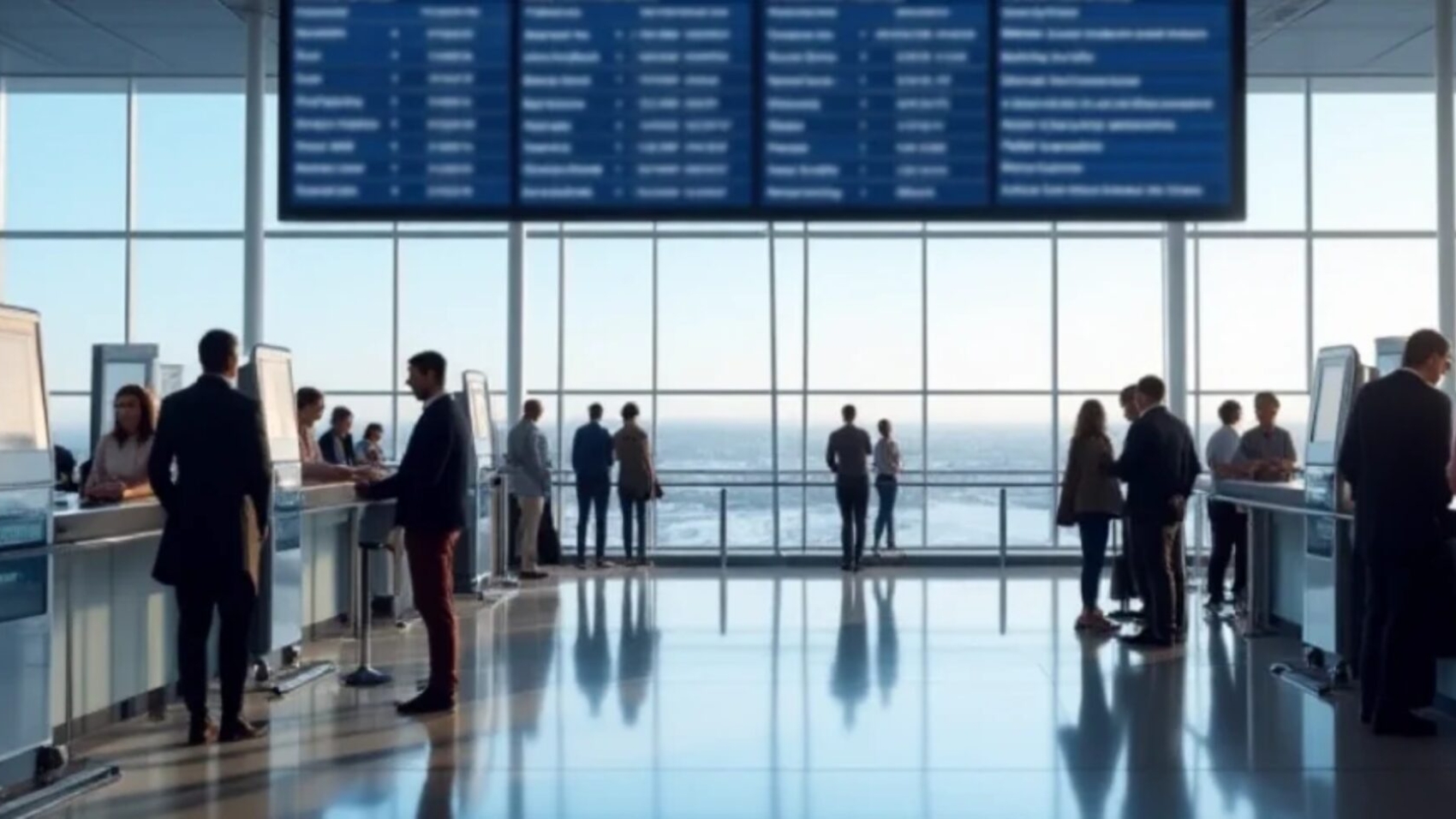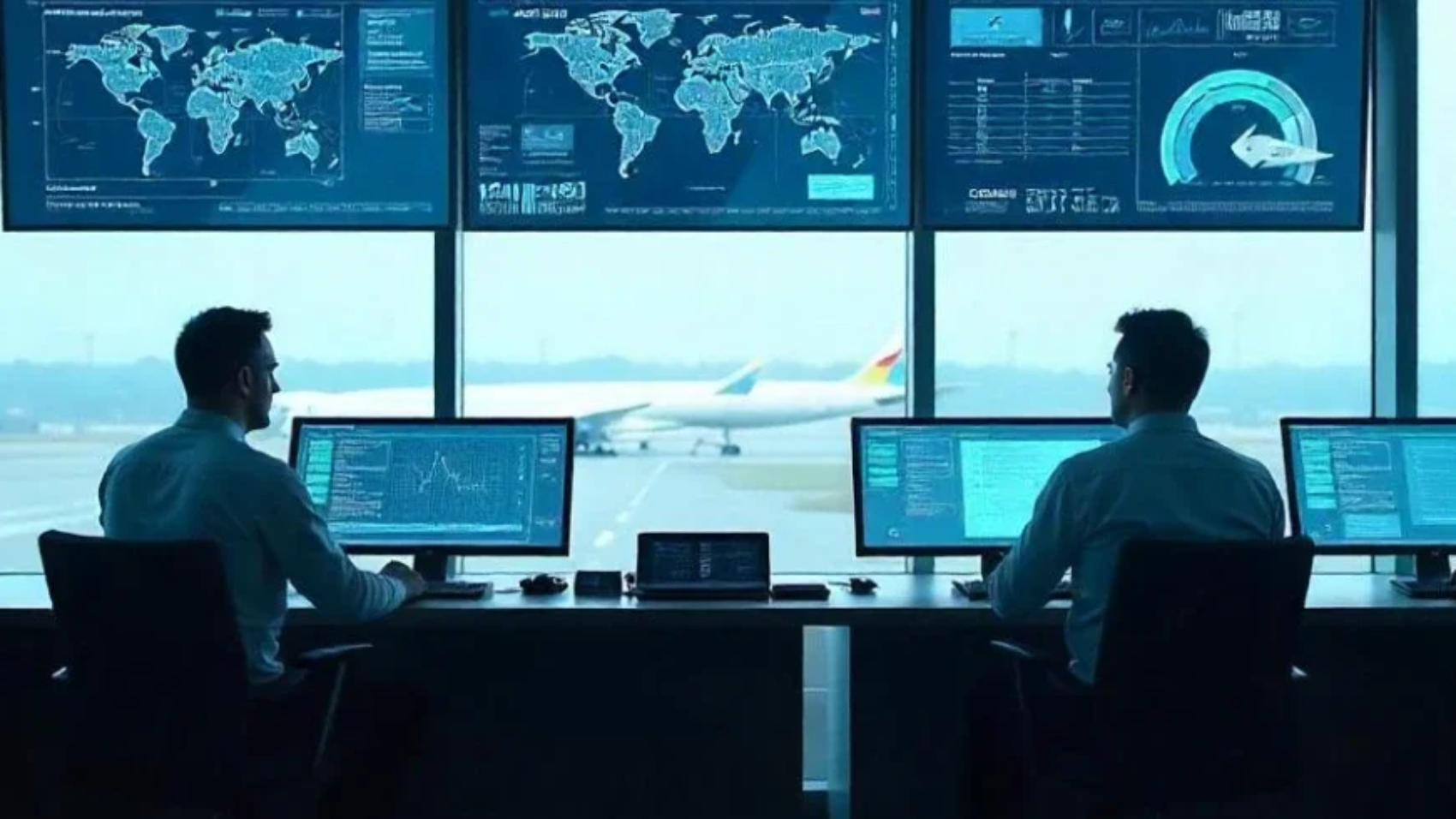Flight disruptions are inevitable in the aviation industry, but their financial impact doesn’t have to be overwhelming. While traditional disruption management relies heavily on manual intervention from customer service teams, forward-thinking airlines are discovering that self-service re-accommodation through intelligent booking portals can dramatically reduce both operational costs and passenger frustration.
FAA/Nextor estimated the annual costs of delays (direct cost to airlines and passengers, lost demand, and indirect costs) in 2019 to be $33 billion, while recent industry analysis indicates that flight disruption costs airlines between $25B and $35B annually – about 5% of airline revenue. However, airlines implementing robust self-service solutions are finding significant opportunities to reduce these costs while improving customer satisfaction.
1. Reduce Customer Service Workload and Associated Labor Costs
The most immediate impact of self-service re-accommodation is the dramatic reduction in customer service volume during disruptions. Traditional disruption scenarios create overwhelming call center surges, forcing airlines to staff expensive overflow capacity or outsource to third-party providers.
With an intelligent self-booking portal, passengers can instantly access alternative flight options, rebooking themselves without human intervention. This automation handles the majority of straightforward rebooking requests, allowing customer service agents to focus on complex cases requiring personal attention.
Recent industry trends show that airlines are increasingly investing in self-service technologies. American Airlines is eliminating automatic paper boarding passes for online-checked-in passengers starting March 31, 2025, to promote digital boarding passes and save One Hundred Seventy-Five Thousand Dollars annually, demonstrating the concrete cost savings possible through digital self-service initiatives.
Implementation Strategy: Deploy a mobile-first self-service platform that integrates with real-time inventory systems and provides personalized rebooking options based on passenger preferences and fare class entitlements.
2. Minimize Compensation and Accommodation Expenses
Self-service portals excel at presenting passengers with options that balance their needs with airline cost considerations. By offering tiered rebooking choices with transparent trade-offs, airlines can guide passengers toward cost-effective solutions while maintaining customer satisfaction.
The key is intelligent option ranking that considers both passenger preferences and airline costs. For example, the system might prioritize same-day rebooking on partner airlines over next-day direct flights with hotel accommodation, especially when the cost differential is significant.
Current flight disruption data shows the scale of the challenge. For July 2024, 2.9% of flights were cancelled, higher than the year-to-date cancellation rate of 1.7% in 2024, and 23% of flight disruptions led to passengers experiencing delays of over five hours, with 10% of respondents facing delays surpassing 12 hours, or even failing to reach their destination altogether.
Implementation Strategy: Develop dynamic pricing algorithms that factor in total cost of ownership, including compensation obligations, when presenting rebooking options to passengers.
3. Optimize Inventory Management and Revenue Recovery
Traditional disruption management often involves manual inventory allocation, leading to suboptimal seat assignment and revenue loss. Self-service platforms can integrate sophisticated revenue management algorithms that optimize rebooking decisions in real-time.
The system can automatically consider factors such as passenger lifetime value, original ticket price, available inventory across multiple flights, and partner airline costs to present options that maximize revenue recovery while minimizing total disruption costs.
Implementation Strategy: Integrate the self-service portal with existing revenue management systems and establish dynamic pricing rules that adjust based on disruption severity and available alternatives.
4. Accelerate Resolution Times and Reduce Operational Complexity
Speed is critical in disruption management. Every minute of delay compounds costs through crew overtime, gate fees, and passenger compensation escalation. Self-service platforms can process rebooking requests in seconds rather than the minutes or hours required for manual intervention.
Faster resolution also reduces the complexity of multi-leg disruptions where initial delays create cascading effects. By quickly redistributing passengers across available flights, airlines can minimize the operational disruption and return to normal schedules more rapidly.
The scope of major disruptions demonstrates why speed matters. Over 110,000 passengers in Canada were affected – that’s a whopping 47% of the flights scheduled. It also majorly impacted flights from the US, as well as Europe, leaving a little over 1.25 million passengers stuck at terminal Limbo during one of 2024’s major disruption events.
Implementation Strategy: Design the self-service workflow to prioritize speed while maintaining accuracy, with intelligent defaults and one-click rebooking options for common scenarios.
5. Enhance Data Analytics and Predictive Cost Management
Self-service platforms generate rich data about passenger behavior, preferences, and decision-making patterns during disruptions. This data becomes invaluable for predictive analytics and proactive cost management.
Airlines can analyze historical self-service data to predict disruption costs more accurately, optimize inventory allocation strategies, and even influence passenger behavior through targeted incentives. The insights gained enable more sophisticated revenue management and operational planning.
Implementation Strategy: Implement comprehensive analytics tracking within the self-service platform and establish regular reporting cycles to identify optimization opportunities.
The VoyagerAid Advantage
VoyagerAid’s Airline disruption management platform exemplifies these cost-cutting principles through its intelligent self-service re-accommodation portal. The system seamlessly integrates with existing airline infrastructure while providing passengers with an intuitive, mobile-optimized experience that encourages self-service adoption.
Key features include real-time inventory integration, intelligent option ranking, automated compensation calculations, and comprehensive analytics dashboards that help airlines optimize their disruption management strategies over time.
Measuring Success: Key Performance Indicators
Airlines implementing self-service re-accommodation should track these critical metrics:
- Self-service adoption rate: Monitor percentage of disrupted passengers using self-service channels
- Average resolution time: Track time from disruption notification to passenger rebooking
- Customer service contact reduction: Measure decrease in calls during disruptions
- Cost per disrupted passenger: Monitor total cost including compensation, accommodation, and operational expenses
- Revenue recovery rate: Track percentage of original ticket value recovered through rebooking
Industry Context and Future Outlook
The aviation industry continues to face operational challenges. The result is an improvement of net margins from 3.4% in 2024 to 3.7% in 2025. That’s still about half the average profitability across all industries, according to IATA, making cost optimization through technology solutions increasingly critical for airline competitiveness.
Conclusion
The aviation industry’s approach to disruption management is evolving rapidly, with self-service re-accommodation emerging as a critical competitive advantage. Airlines that embrace these technologies today will be better positioned to manage future disruptions cost-effectively while maintaining high levels of customer satisfaction.
The path forward requires strategic investment in technology platforms that can handle the complexity of modern airline operations while providing passengers with the autonomy they increasingly expect. By focusing on these five key areas – reducing labor costs, minimizing compensation expenses, optimizing inventory management, accelerating resolution times, and enhancing data analytics – airlines can transform flight disruptions from costly liabilities into manageable operational challenges.
The question isn’t whether airlines should adopt self-service disruption management, but how quickly they can implement these solutions to stay competitive in an industry where margins remain tight and operational efficiency is paramount.

